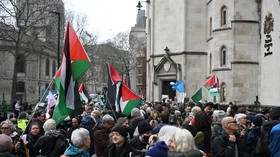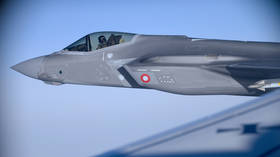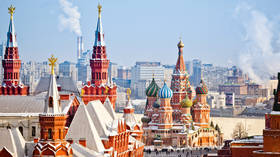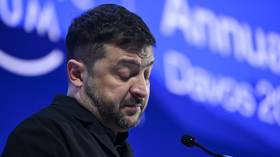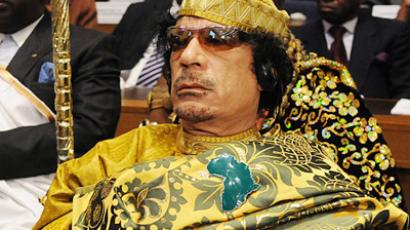NATO saving face, not civilians in Libya
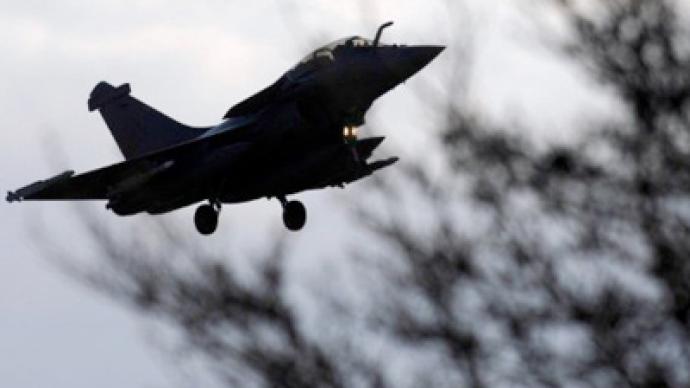
Insisting that it is not attempting to facilitate regime change in Libya, NATO’s top official says its military mission in the North African country will continue for another 90 days.
"NATO and its partners have just decided to extend our mission for Libya for another 90 days,” Secretary-General Anders Fogh Rasmussen said on Wednesday. “This decision sends a clear message to the Gaddafi regime: We are determined to continue our operation to protect the people of Libya.”The announcement comes as NATO is escalating its military operation against strategic government installations in an apparent effort to loosen Muammar Gaddafi’s grip on power.NATO warplanes struck targets near the Libyan capital Tripoli overnight, just hours after South African President Jacob Zuma met with Gaddafi in an effort to secure a ceasefire between government forces and rebel fighters.Libyan officials slammed the attacks, charging NATO with deliberately hitting civilian targets, causing critical conditions for civilians who are caught in the middle of the deepening conflict. At least 1,200 civilians have died or gone missing while attempting to flee the war-torn country, a UN official said Tuesday. Critics charge that the conflict between pro-Gaddafi forces and the rebels has grounded to a stalemate, and now NATO members fear that leaving Gaddafi in power would be interpreted as a political defeat back in their home countries. Now they have no choice but to continue their attacks in the name of protecting civilians in the hope of extracting the Libyan strongman.NATO continues to insist that protecting innocent civilians, not facilitating regime change, is its goal in Libya.In March, Dmitry Rogozin, Russia’s Ambassador to NATO, warned that the 28-member military bloc could be dragged into a full-scale war in Libya, like those being waged in Iraq and Afghanistan. With the latest turn of events, that prediction is looking fairly accurate."Just as we forecast, NATO is being drawn deeper and deeper into war in North Africa," Rogozin told Interfax news agency. “NATO members and the alliance on the whole could draw this bloc into a full-scale operation on Libyan territory, which means essentially the US and its closest allies could be drawn into a third war in addition to those in Iraq and Afghanistan."Moscow, which has warned the alliance in the past against going beyond the UN mandate in Libya, abstained in a Security Council vote that authorized a no-fly zone, thus paving the way for armed intervention by NATO. Meanwhile, Muammar Gaddafi, who has been in power for just under 42 years, is attempting to absorb the intensifying NATO aerial bombardment and put a lid on a rebellion among his own people.NATO’s announcement came during a meeting of ambassadors from the 28 NATO member states, plus ambassadors from the five non-NATO countries participating in the Libya campaign – Jordan, Qatar, Sweden, the United Arab Emirates and Morocco – said Carmen Romero, NATO's deputy spokeswoman.NATO assumed command of the operation on March 31 after participating states, most notably France, the UK and the US, could not agree on a strategy.The decision to extend the campaign was taken nearly a month ahead of its June 27 expiration date in order to allow the participating countries to do their internal planning, Romero said.NATO is also enforcing a UN arms embargo against Libya, a part of the operation that has no time limit.Meanwhile, Russian President Dmitry Medvedev discussed the situation in Libya with South African President Jacob Zuma in a telephone conversation on Tuesday evening."Just as was agreed upon between the Russian and South African leaders during their previous telephone conversation on May 28, Jacob Zuma told Medvedev about the results of his recent mission to Libya under a decision by the African Union extraordinary summit and about his meeting with Muammar Gaddafi during this trip," the Kremlin press service reported.Robert Bridge, RT


